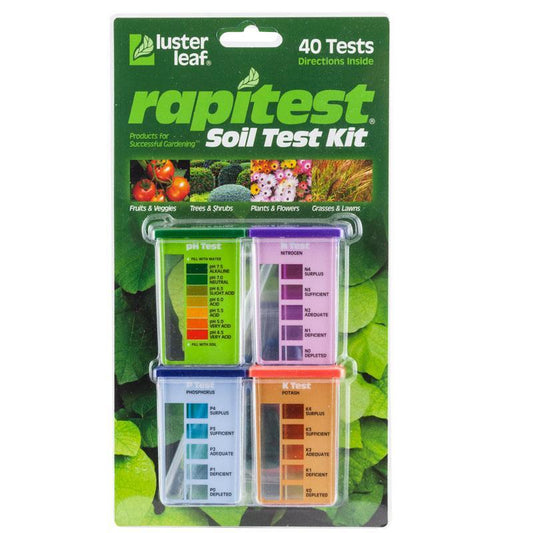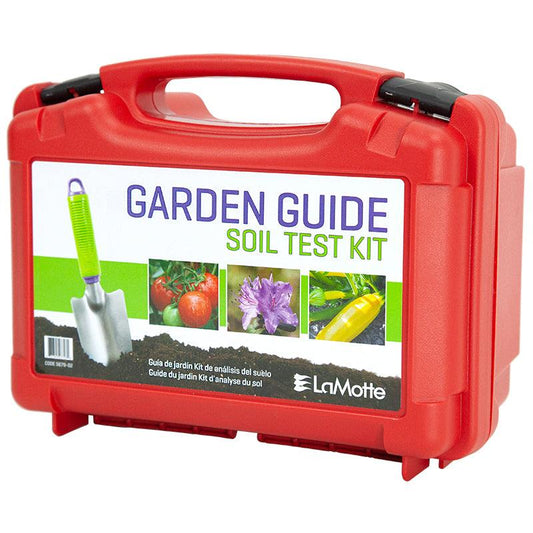Understanding NPK Soil Testing Kits: A Comprehensive Guide
NPK soil test kits are essential tools for gardeners, farmers, and anyone involved in agriculture or horticulture. These kits provide valuable information about the nutrient content in the soil, helping users make informed decisions about fertilization and plant care. Each NPK soil test kit includes the necessary apparatus, such as test tubes, a laminated color chart, and apparatus simple diagrammed instructions, making them safe, easy to use for accurately determining nitrogen (N), phosphorus (P), and potassium (K) levels.
These kits are often specifically designed to meet the exacting requirements of programs like Global Learning and Observations to Benefit the Environment, making them ideal for teaching upper elementary, middle, and high school students about soil nutrients and plant growth. With clear instructions and comprehensive components, users can confidently perform an NPK soil test to understand their soil's health, often without additional shipping charges. Utilizing NPK soil testing regularly empowers individuals to optimize plant nutrition and achieve healthier, more productive gardens and crops.
What is NPK?
Before delving into NPK soil testing kits, it's essential to understand the term "NPK." NPK stands for Nitrogen (N), Phosphorus (P), and Potassium (K) – three vital nutrients that plants need in varying quantities for growth and development. Nitrogen promotes leafy growth, phosphorus supports root development and flower/fruit production, and potassium aids in overall plant health and disease resistance. To accurately measure these essential nutrients, consider using an n-p-k soil tester digital or an npk tester. The npk soil tester allows you to assess soil health, ensuring optimal conditions for plant growth.
Why is Soil Testing Important?
Soil testing is a fundamental practice for anyone involved in agriculture or gardening. It provides critical insights into the soil's nutrient levels, pH, and other essential parameters. By understanding the soil's nutrient composition, growers can tailor their fertilization strategies to ensure plants receive the right nutrients in the right quantities, preventing nutrient deficiencies or excesses that can lead to poor growth and reduced yields.
Types of NPK Soil Testing Kits
There are various NPK soil testing kits available to cater to different needs and preferences:
-
Chemical Test Kits: These kits use chemical reagents to determine nutrient levels in the soil. Users collect soil samples, mix them with specific reagents, and observe color changes to estimate nutrient concentrations. They are cost-effective and suitable for basic soil testing.
-
Digital Soil Testers: Digital soil testers, also known as soil nutrient meters, provide quick and precise readings of NPK levels in the soil. These handheld devices use advanced sensor technology to analyze the soil and display nutrient data on a digital screen. They are user-friendly and suitable for both professionals and hobbyists.
-
Laboratory Soil Testing: Some individuals send soil samples to a soil testing laboratory for in-depth analysis. Professionals conduct comprehensive tests, including NPK levels, pH, and micronutrient analysis.
How NPK Soil Testing Kits Work
The specific operation of NPK soil testing kits may vary depending on the type, but the basic principle remains the same:
-
Sample Collection: Users collect soil samples from different areas of their garden or field. It is essential to gather representative samples to get accurate results.
-
Preparation: Depending on the kit type, users either prepare a soil solution with reagents (chemical kits) or insert a probe into the soil (digital testers). Laboratory testing involves packaging and sending samples to the lab.
-
Analysis: The kit or laboratory equipment analyzes the soil samples, detecting nutrient levels and sometimes pH.
-
Interpretation: Users interpret the results to determine the nutrient content of their soil. Recommendations for fertilization are often provided based on these findings.
Benefits of Using NPK Soil Testing Kits
Using NPK soil testing kits offers several advantages:
-
Optimal Fertilization: Soil tests guide users in applying the right type and amount of fertilizer, reducing waste and cost while maximizing plant growth.
-
Improved Crop Yields: Proper nutrient management leads to healthier plants and increased yields, benefiting both home gardeners and commercial farmers.
-
Environmental Impact: Precise fertilization reduces the risk of nutrient runoff, which can harm water bodies and ecosystems.
NPK soil testing kits are indispensable tools for anyone involved in soil management. They provide valuable insights into soil nutrient content, enabling growers to make informed decisions and achieve healthier plants and higher yields. Whether you choose chemical test kits, digital soil testers, or laboratory testing, incorporating soil testing into your gardening or farming routine can lead to more sustainable and productive agricultural practices.





